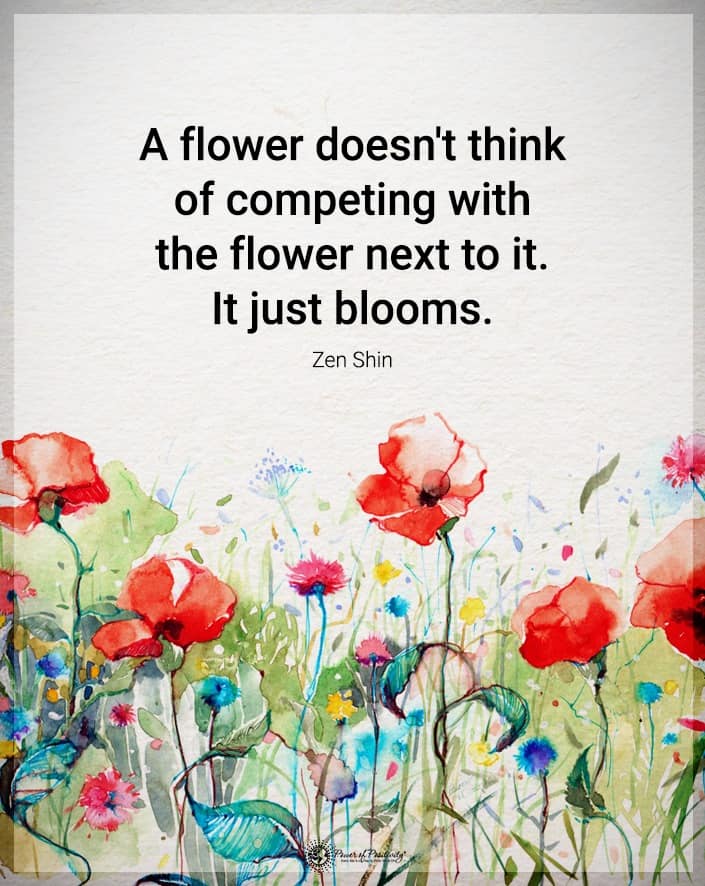Self-regulation is a term with many different definitions in the realm of psychology.
Most experts define it as the ability to execute actions aligned with core values and long-term goals. This practice involves the capability of emotional intelligence, as you’ll need to control and manage your feelings, thoughts, and reactions in the process.
In the most generic layman’s terms, the ability to self-regulate means you can think before you act. It means that you can satisfy your emotional thoughts in positive ways so that your actions are ones you’d be happy with. This skill prevents you from caving into more disruptive feelings and other similar impulses.
Most adults’ level of skill in self-regulation is rooted in their childhood development, research shows. If you learned to self-regulate as a child, you developed emotional maturity and socially intelligent management skills as part of your upbringing. If you never knew these things, you likely struggle with self-regulation today.
But does that mean that you’re stuck with your current self-regulation skills? No, not at all! You can learn to boost your self-regulation and improve how you interact with your emotions and thoughts. It’s a complicated process, though, and you remain unconvinced that it’s worth it. Let’s tell you right now that it is! Here are four benefits of self-regulation never to ignore.
1. It Improves Executive Function
Executive function refers to a series of mental skills and cognitive processes that aid in the planning, managing, and executing of various intended goals and actions. Essentially, anything you do that requires conscious decision-making and thought requires executive function.

If you’ve ever struggled to do something, even just a simple task, because you just couldn’t will yourself to, then you’ve worked with executive function problems. For example, you might have sat at your computer and thought, “I need to go to the bathroom,” but found yourself feeling too “lazy” to go for another hour.
These executive function problems are an annoyance with simple everyday tasks, but they can be a massive factor in failing bigger goals. When you’re not able to put a plan into motion and stay disciplined for the required length of that plan, you suffer for it. Goals fall apart, and you get discouraged, which worsens your wellbeing.
Benefits of Self-Regulation:
Self-regulation plays a considerable part in executive function, say studies. It allows you to:
- Build working memory so that you can recall recent information.
- Boost mental flexibility so you can shift focus between sources of stimulus while applying appropriate thoughts and action to the context.
- Improve self-control, so you can better determine priorities, fight off impulses, and manage your feelings and thoughts.
- Solve problems that occur within your planning and management phases without feeling stuck.
- Develop improved attentional control to maintain a dedication to your goals no matter what distractions come your way.
- Remain mindful so you live in the present and don’t become bogged down by rumination or past events.
- Make good decisions or put as much effort as possible into making wise, rationally chosen options in life.
These things, working together, are all a part of executive function. Self-regulation improves your skills in these areas so that they are less of a struggle to achieve.
2. It Improves Emotional Intelligence
Emotional intelligence is a crucial part of everyday life. It can be defined as understanding, perceiving, managing, utilizing, and processing various emotions. These emotions can be your own, which you must self-regulate, or they can be those of others, which you need to increase empathy.
High emotional intelligence allows people to recognize, acknowledge, and manage their own emotions, whether they’re positive or negative. Research also shows that those who are emotionally intelligent have better relationships with others and are often happier, with improved markers for wellbeing.
Self-regulation contributes to emotional intelligence by helping you to regulate and handle the way you feel reflectively. As studies say, doing so gives you an excellent opportunity for better intellectual and emotional growth.
Self-regulation is just one of five markers for emotional intelligence, but it’s a pretty big one! When you control your emotional impulses and influence your thoughts, you don’t overreact or get lost in your head. You don’t ruminate too much over negative experiences or get overconfident because of positive experiences. You know how to react appropriately to each situation and validate your emotions while keeping them in check.
At the same time, you also become more socially intelligent. Your relationships flourish because you can respond appropriately to those around you and put yourself in their shoes. Kindness comes more naturally when you’re emotionally intelligent, after all.
On top of all that, this emotional intelligence can help to reduce the risk of mental health disorders. Or, at the very least, it’ll help you to manage symptoms of depression, anxiety, and other similar illnesses. This outcome happens when heightened EQ will give you better ways of addressing these disorders and coping with the thoughts and feelings they conjure up.

3. It Encourages Approach Instead Of Avoidance or Attacks
There are three typical motivation styles to any given situation, as outlined by many research papers. These styles determine how you react to and handle different events, and they dictate your perspective on life. These styles are:
· Attack
The attack style of motivation involves the desire to undermine or lash out at a given situation, whether literally or figuratively. You’re disinterested in empathizing or getting close to that situation, preferring to keep it at arm’s length through attacks. This can be for self-protection, but it can also exist as a form of selfishness, to view others as competition or things to exploit. This motivation can involve behaviors and actions related to anger, contempt, manipulation, coercion, disgust, abuse, and threats.
· Avoid
The avoid style of motivation involves the desire to escape from or minimize a given situation, whether literally or figuratively. You feel that you have to get away from or diminish something to better repress or escape the thoughts and feelings attached. This can be for self-protection. This motivation can involve behaviors and actions related to withdrawal, dismissal, superiority, inferiority, and devaluing.
· Approach
The approach style of motivation involves the desire to get closer to a given situation, whether literally or figuratively. You’re interested in giving it your attention to better appreciate it, learn from it, or experience it. Curiosity drives you, or perhaps compassion for the person you’re approaching. This motivation can involve behaviors and actions related to cooperation, guidance, protection, learning, bonding, and communication.
It’s pretty obvious which of these three motivational styles are the most beneficial for someone’s life. Approaching gives you the chance to get the truth about a situation, communicate with others positively, and manage your emotions so you don’t act in a way you’ll later regret.
Self-regulation helps you to choose approaching over avoiding or attacking different complex life events. Instead of lashing out, repressing, or otherwise harming yourself and others for self-protection, you’re motivated to learn, grow, and experience life mindfully. This grants you better life satisfaction and healthier relationships! You’ll be able to manage conflict a little more positively while also staying aware of other people’s perspectives.
4. It Keeps You On Track For Success
Self-regulation relies on motivation as much as motivation relies on self-regulation. They go hand-in-hand to create a healthy mindset. Without self-regulation, you can’t achieve success in the way you desire. It’s a harsh truth, but it’s one that you have to keep in mind. It helps you to stick to your goals and continue on your path to achievements by:
- Giving you the ability to understand what matters to you to plot your life goals following them.
- Helping you stick to your core values and beliefs without being swayed by others so you stay on track for your desired outcomes.
- It allows you to discover your unique path, even if it’s against social norms or the typical grain.
- Giving you the ability to develop plans and put them into action to achieve success.
- Providing you internal or intrinsic motivation so you don’t rely on external validation and attention for inspiration.
- Encouraging more substantial commitment to your goals.
- Building your competence and confidence in your abilities to reach your goals.
- Allowing you to make decisions that align with your desired outcomes in life.
- Maintaining the willpower to regulate your impulses and stay disciplined, so you don’t lose sight of your goals.
- Giving you resilience so that failures don’t discourage you from your goals, instead of teaching you to learn from mistakes and find silver linings, according to studies.
The road to success is far from easy, and without self-regulation, you might find it an insurmountable and challenging path. If you can adequately delegate your actions and feelings, you’ll have a much better shot at that.
Final Thoughts On Some Benefits Of Self-Regulation To Never Ignore
Self-regulation is an essential skill that has to be present for someone to have a healthy, happy life. It’s crucial to executive function, emotional intelligence, motivational styles, and long-term success and goal achievement. It’s also a somewhat tricky skill to develop, and many people struggle with self-regulation.
If you have issues with self-regulation, they likely stem from childhood. The formation of an unhealthy attachment style is often caused by young children not being taught how to regulate their feelings. This can lead to several serious issues later on in life. As an adult, the fact that you never mastered this skill means you see the world through a much more painful lens.
Things like cognitive reframing and mindfulness can work wonders for slowly improving your ability to self-regulate. Research shows that these two coping styles are especially helpful for emotional management. You learn to reframe your perspective on situations to be kinder and more grateful, and you also know to take each day one step at a time. You’re not bogged down by your past or your worries about the future!
It’s worth bearing in mind that disorders like anxiety, depression, ADHD, BPD, PTSD, and others can affect self-regulation. If you face these issues, it’s a good idea to talk to a mental health professional for advice on how to teach yourself self-regulation for your unique situation!
The post 4 Benefits of Self-Regulation Never to Ignore appeared first on Power of Positivity: Positive Thinking & Attitude.






